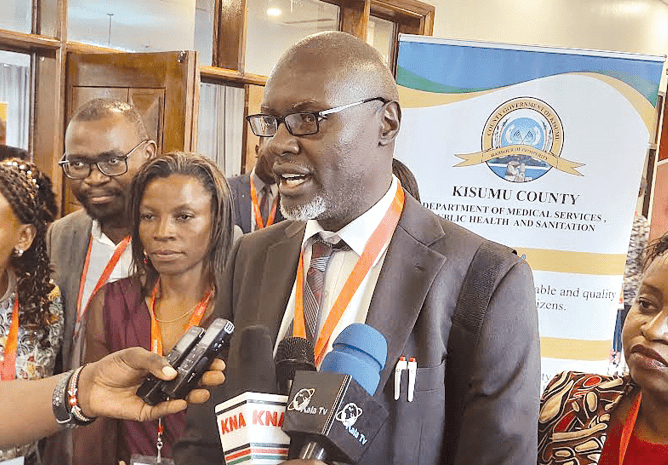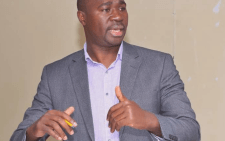Acute shortage of drugs affects Kisumu clinics

Most medical health facilities in Kisumu county are facing an acute shortage of essential drugs, a new study has established. The lack of adequate medical supplies, essential drugs and equipment has many patients to seek services elsewhere.
This is according to findings by Kisumu County Health Survey in partnership with Community Initiative Action Group (CIAG), and Open Institute.
The health survey was done over eight months in health centres, revealing several gaps in healthcare provision.
The survey established that the county, with a population of approximately 1.1 million people, still grapples with healthcare challenges.
According to CIAG Director Chris Owala, the county has only 185 health facilities and 1,200 health staff.
This scarcity has grossly affected service delivery and resource allocation in a number of the health facilities surveyed.
“Addressing these issues is crucial for improving healthcare access and quality in the region. We are asking the authorities to act now,’’ he said.
The findings also revealed that general satisfaction with services provided was inadequate and did not meet patients’ expectations.
Long queues
Some health facilities were easily accessible with many patients taking an average of 20-45 minutes to reach the facilities from their residence.’
Patients, the report found, were waiting for too long in the queue to be served.
“Many patients also complained waiting relatively longer for laboratory services, while some lacked adequate medical staff,’’ Owala disclosed.
Majority were also not enrolled into the national insurance plan (NHIF) now turned SHIF, according to the report released yesterday.
Again, the majority of patients were not issued with payment receipts when seeking medication.
Kisumu health authorities led by CECM Gregory Ganda, remained tight-lipped on the report saying they will read it first and comment later.
The CIAG and Open institute survey established that an additional support was required to procure and supply the most essential drugs.
The County health authorities also need to develop an advocacy action plan that will drive the agenda for health sector improvement.
“We also expect them to undertake regular consultative meetings with stakeholders within the health sector to map out strategies of issues emerging from the report,’’ said Owala.
Strengthening the health financing systems with a shift towards universal health coverage that is government financed would ensure that these services are easily accessible to all the clients.
Collection process
The report wants the County to Automate the revenue collection processes as per PFM Act. “If they do this, they would benefit in enhancing transparency, enhancing efficiency, reducing duplication and revenue leakages,’’ Owala said
In some facilities, the medical staff consistently reported late for work and left early, impacting the availability of healthcare services
The survey observed that in some health facilities medical staff reside far from the health facilities due to absence of staff houses.
This resulted in delayed reporting and early departures, potentially affecting service delivery.
Patients were also required to purchase their own record books from shops, causing frustration and financial strain.
There were instances where individuals left the facility without necessary documentation, according to lead researcher Dr Benard Guya.
“The hospital directed patients to buy medication from external pharmacies, ‘’ Guya noted.
This saw them ending up incurring higher costs compared to purchasing directly from the hospital.
Some service providers, Dr Guya claimed, exhibited laxity in their duties, potentially affecting the quality and timeliness of healthcare services.
Unaccompanied children under 18 sought treatment at healthcare facilities, with some sent directly from school and others alone.
Patients who spoke during the survey, voiced complaints about the poor condition of roads leading to healthcare facilities.
Ken Owino claimed that this had contributed to increased treatment costs due to high transportation expenses.
Efforts to improve healthcare in Kisumu County should focus on equitable resource allocation, strengthening health systems, and ensuring essential drugs reach those who need them most.



